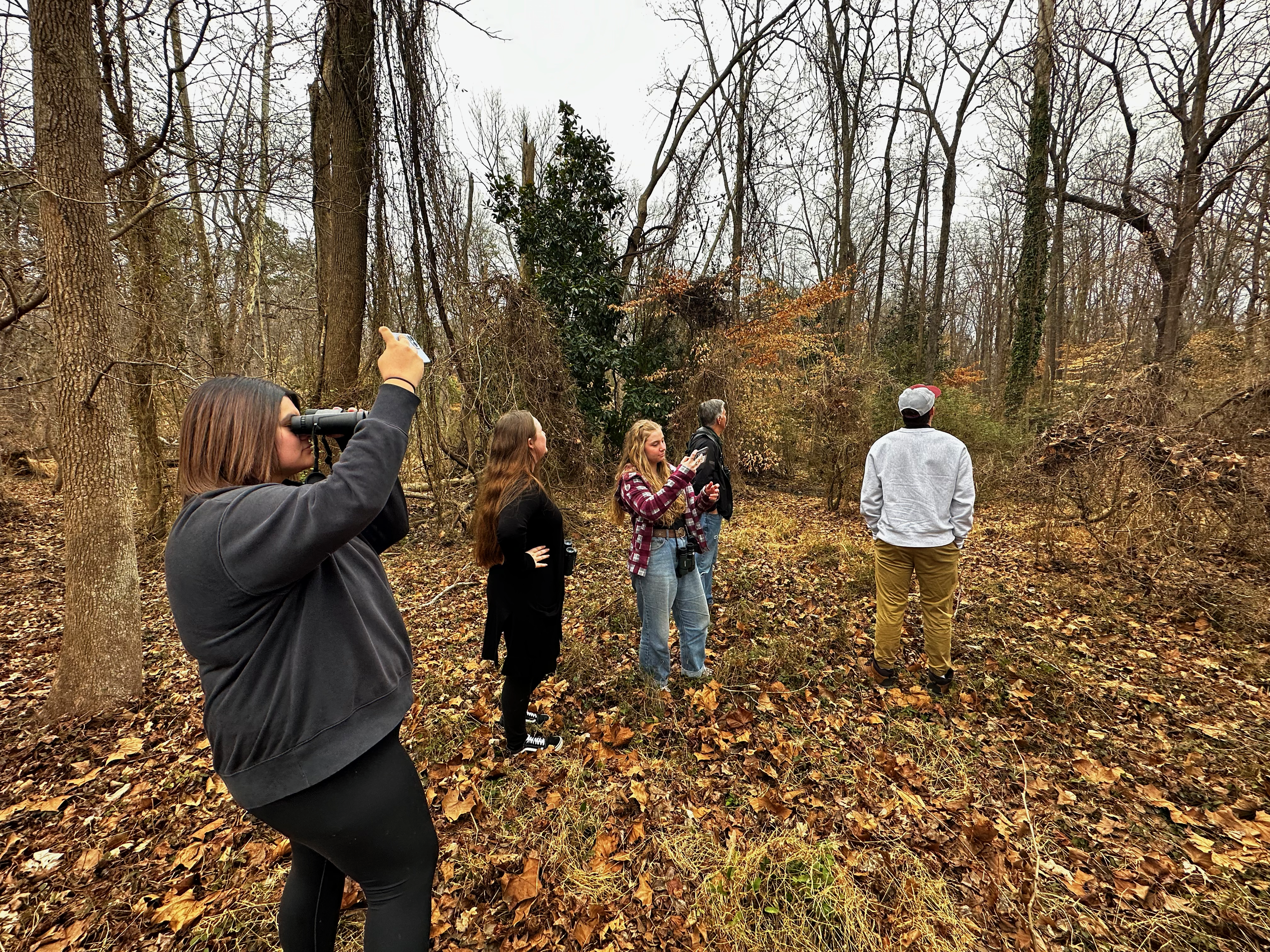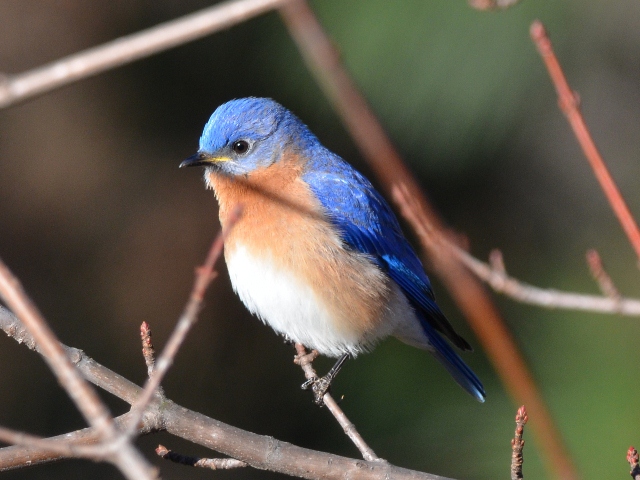Let’s Get Bored Together: The Practice of Silence and Resisting the Attention Economy
I am teaching a class this semester at Guilford College called, “The Practice of Silence.” The class is both what it sounds like and a lot more. We are studying the Quaker theology behind the Quaker practice of silence but we’re also studying it from the broader lens of building focus, attention, and learning how to be still. And yes, in each class we have extended periods of silence or do some kind of mindfulness exercise that helps us build our attention.
For those wondering: We have three main texts books. The first is the amazing book by Jenny Odell, “How to Do Nothing: Resisting the Attention Economy.” The book is great if you are interested in reading stories and practices that are meant to help move toward a more attentive life. Odell’s writing style is beautiful, meandering, and is itself a kind of experience in calmness. My students have said it best when they talk about how some of the parts are kind of slow, but how much they like the slowness of the chapters because they feel like she is intentionally leading them in practices that bring about just what she is writing about. We’re also reading some of John Puhnson’s “Encounter with Silence” for the Quaker angle and “Bored and Brilliant: How Spacing Out Can Unlock Your Most Productive and Creative” by Manoush Zomorodi for a little more around technology.
Let’s Get Bored Together

The idea came from a variety sources: conversations with friends about our own struggles with anxiety and focus; work that one of my students, now graduated, did on the connections between silence, flow, and ecstasis; and a class I did last spring on New Media and Religion where we spent a good part of the class talking about the impact of social media’s human engineering and the algorithms of profit and hate. In that class, I started to see the need for various practices that could help us resist the attention economy, as Odell calls it. After we watched the documentary Social Dilemma, I really started thinking about the “boredom as superpower” as one possible response and saw that the thing that makes silence so hard and unappealing is exactly part of its potency – it helps us build a capacity to be quiet, to refuse to be entertained, it slows us down and helps us be more attentive and more present around us. The exact opposite of what these technologies aim to do.
What would happen if we worked on the skill, our willingness, even our courage to get bored today? To be quiet without the flash of the screen, the ding of a notification, or the dopamine hit of a “like?” What if we saw boredom, or a regular, sustained stillness as a practice of resistance that could reclaim our lives and attention and perhaps our sanity?

As an aside: I ended that class with an experiment: I wanted to see what would happen if we all got really “bored” together. In contrast to New Media, I brought in a record player and Radiohead’s OK COMPUTER, a fitting album on the ills of new technology, and we put our phones and laptops down and we listened to this album together. I had different students come up and learn how to put the record on the turn-table and put the needle on the vinyl. The four discs of OK COMPUTER gave us some extra opportunities to learn this skill. Besides it being the first time many of the students listened to a record player it was a practice in presence and sharing an experience together. It felt a little like a church service, all of us sitting around this turntable while Thom Yorke sung, sometimes shouted, his God-given prophetic message. It was a moving experience. While not every student was into it a lot were.
I remember one student coming to me afterwards saying: “It took me a little while to understand what he was singing about but eventually, as I listened, the words became clearer. And did you hear Beethoven in there? I hear Beethoven as I listened.”
This was a practice in attention and it didn’t really take all that long to have a shared experience of what can happen if we just sit and are still for a while.
Boredom as Superpower
This past year, I started to notice the increasing challenges our students are coming into college with: amplified anxiety, difficulty focusing, struggles with Executive Functioning, and many students are coming in less-prepared for college than even a couple years ago. Covid has really done a number on this generation of students.
Related: I’m glad to see some of these students pushing back in other ways: ‘Luddite’ Teens Don’t Want Your Likes When the only thing better than a flip phone is no phone at all via the NYTimes.
So I began to wonder, what would happen if a group of students made a concerted effort to learn about and practice silence? Would there be any discernible difference in their well-being, any change in their ability to focus and do deep work, any other changes? Would students who worked at building a capacity for stillness, for being bored, gain a kind of “superpower” that could be employed here in college and later in life?
Thus the idea of the class was born.
The Practice of Silence is a 1 credit hour class so we meet once a week for 75 mins. We open with a poem and a moment of silence. We discuss the readings. We have guests come and talk to us. And then we practice silence. Or we go birding. Or we sit or wander outside aimlessly looking at the trees, birds, and bugs. Whatever helps us calm down and focus for a little bit.
I was not sure if students would take a class on silence, in fact, I was doubtful the class would fill enough to run. But I have 7 in the class and they all seem to love it. There is a good energy there and a growing sense of community. I see a genuine interest in the subject and in the practice. They lead the class discussions and suggest new topics and ways to practice silence.

I mentioned birding above, Odell talks quite a bit in her book about paying attention to the more-than-human world and encourages her readings to see it as a “who” rather than an “it.” We are in community with the Magnolias, Oaks, Tulip Populars, and Maples. We are in community with the Fish Crows, the barn owls out in the Guilford Woods, the Eastern Carolina Bluebird that I watch in my backyard.
Well, a student in the class said she had always wanted to go birding, so I called up a friend who taught at Guilford and he got us enough binoculars and took us birding out in the Guilford woods. It was my first time too and I’m hooked.
Another class period, I taught the students how to make coffee as a ritual. First, we ground the coffee, then we made it using three different methods: the coffee maker, the Chemex, and the AeroPress. Each one takes time and attention. There are small details and different ways to ensure a delightful cup of coffee. We tasted the coffees made with the different methods. Students who said they didn’t like coffee unless it had a bunch of cream and sugar, enjoyed the freshly roasted Ethiopia Sidamo we shared together without anything in it.
For another, I invited a colleague who works with people with ADHD and others who are neurodivergent and she talked to us about about her work and the ways that meditation and mindfulness can help increase executive function. Another colleague and friend, Brenda Swearingin, professor of Sports Studies at Guilford College, came and talked about her 13 hour swim across the English Channel. She talked about how she prepared herself to be silent for the 13 hour swim!
One of the things I am learning is that with a little more attention some many aspects of life bloom into something more beautiful than I first imagined. Knowing the song of the Northern Cardinal that sings outside my bedroom window every morning at just the right time for me to get up becomes a neighbor, a friend who greets me each morning. We met over the practice of silence, first I had to slow down and pay attention, then in my noticing, I noticed that someone was there. I wonder how much more I can see, hear, taste, and know, by becoming more comfortable just being a little more still?
The class isn’t done yet, and I’m excited for some of the upcoming topics and ideas we still have left. We’ve already scheduled another class for next fall!